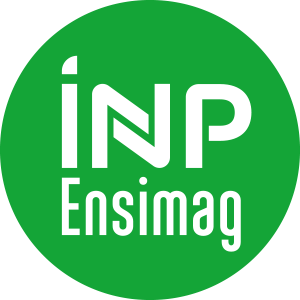Number of hours
- Lectures 16.5
- Projects -
- Tutorials 16.5
- Internship -
- Laboratory works -
- Written tests -
ECTS
ECTS 3.0
Goal(s)
The aim of this class is to introduce students to several fundamental notions of Logic that are frequently used in computer science. Among other things, students will discover the formal notions of proofs and models, as well as some links between the expressivity of a logic and its decidability. The course focuses on propositional and first-order logic, but more advanced notions such as Satisfiability Modulo Theories are also introduced.
Nicolas PELTIER, Mnacho ECHENIM
Content(s)
Propositional logic
- Normalization, conjunctive normal form, renaming
- Refutational inference systems, Resolution
- Compactness theorem, DPLL
First-order logic - Syntax and semantics
- Herbrand's theorem, Skolemization
- The Resolution calculus
- Congruence closure, Satisfiability Modulo THeories
Notions of discrete mathematics (definition of a language, proofs by structural induction)
Basic notions from set theory (standard set operations, set-theoretic definition of a function, of a relation...)
Evaluation : 25% of Devoir à la maison and 75% of Examen Ecrit (2h)
Resit : Examen Ecrit (2h)
Howework, a written exam that lasts two hours.
The course exists in the following branches:
- Curriculum - Information Systems Engineering - Semester 7
Course ID : 4MMFLI
Course language(s): 
The course is attached to the following structures:
- Team Theoretical computer science
You can find this course among all other courses.
T. Boy de la Tour, M. Echenim: Eléments du cours de Logique 2A Ensimag
R. Caferra: Logique pour l'informatique et pour l'intelligence artificielle. Editions Hermès - Lavoisier



